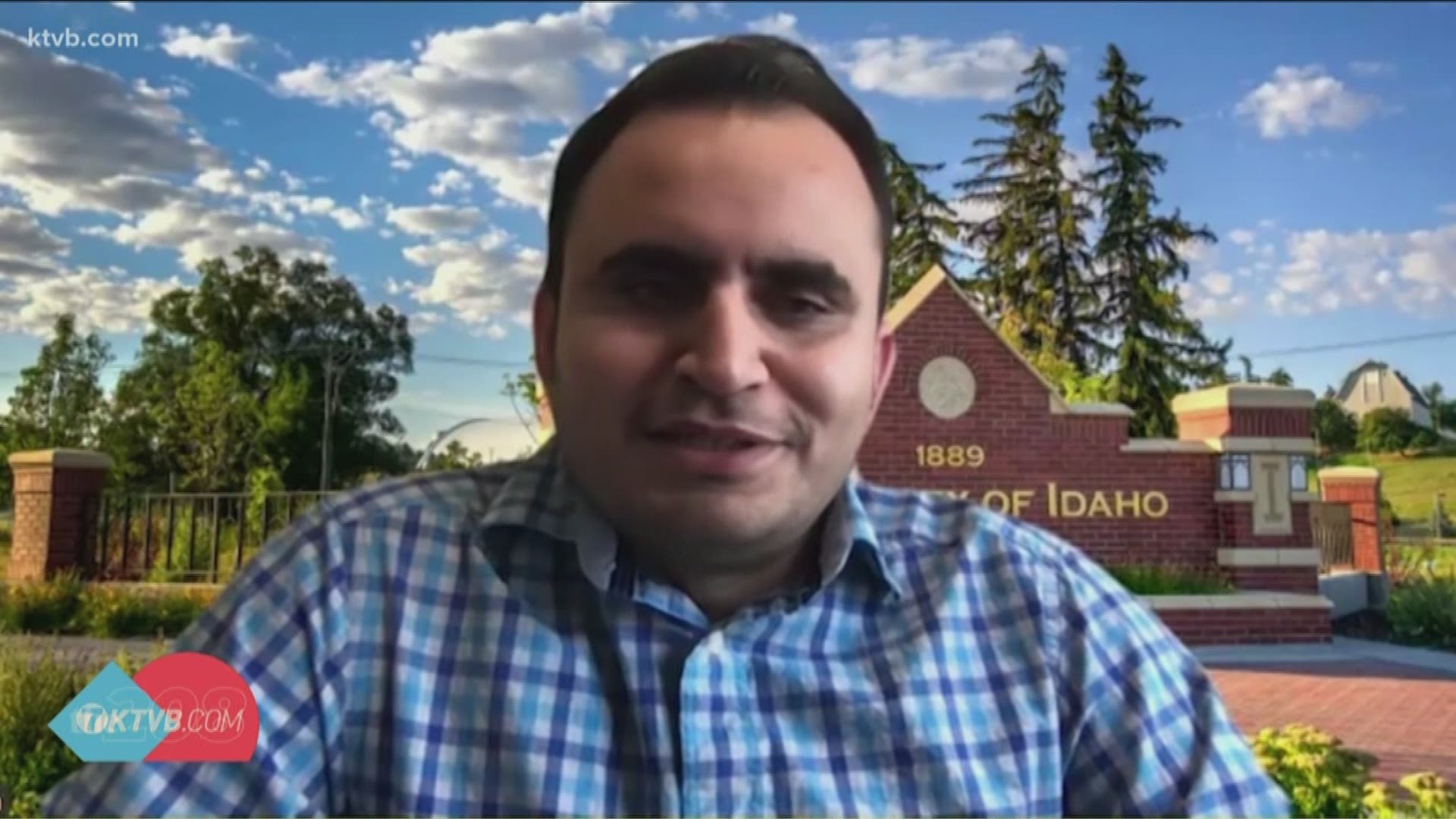BOISE, Idaho — We've talked a lot about testing for COVID-19. A cure would be even better.
Did you know that work is underway right here in Idaho to find a cure?
KTVB talked with two researchers at the University of Idaho to learn more.
We've all seen the picture by now of what coronavirus looks like -- shaped like a ball with little spikes on it.
When a person becomes infected, those spikes latch onto the surfaces of throat and lung cells. The infected cells then replicate millions and millions of times.
Idaho COVID-19 latest: Latest news | Map of confirmed Idaho cases | Stay-at-home order details | COVID-19 resources | Testing sites | Employers hiring | Essential business list | Closings | School closings | Help nonprofits| Golf info | Full COVID-19 coverage
Jagdish Patel and his team at the University of Idaho hopes to create a drug that shields human cells from those spikes.
Most research across the country is focusing on finding drugs to attack the actual coronavirus, or the ball and spikes.
But the University of Idaho is approaching it the other way -- by protecting cells from being invaded in the first place.
"It is definitely exciting," said Patel" Considering, I mean, this kind of research has not come out of Idaho. It's not that frequent that somebody is working on this kind of project where somebody is coming up with a cure. And from a scientific point of view, we are excited because our approach has not been explored in detail yet. Our approach would serve as a backup strategy if for some reason the vaccines would not work."
"My background is in HIV research," said Dr. Paul Rowley, a virologist. "And there's already one marketable therapeutic one available for treating HIV and it's called Maraviroc. Now that is a similar kind of strategy that we're taking, the fact that it behaves like a shield to protect individual cells from attack by HIV, the Human Immunodeficiency Virus. So in our approach we figured that that would be a reasonable way to target the coronavirus to protect human cells as well. I feel very excited about this. My whole lab has moved and changed direction from studying HIV and moved wholeheartedly to study coronavirus, adapting all the systems that we've worked very hard on the last few years to develop, and now using them to find the current very important pandemic. We'd hope to generate some leads in the future."
Patel says drugs targeting human cells, as opposed to viruses, are likely to be effective for a longer period of time.
It also has the potential of protecting us from other coronaviruses like those that cause mild to severe respiratory infections.
Doctors Patel and Rowley are hopeful of finding potential leads within a year.
Their findings would then go before the FDA for approval, which could take several more years.
Still, it's promising research that's happening in our own backyard, at the University of Idaho.
Facts not fear: More on coronavirus
See our latest updates in our YouTube playlist:
At KTVB, we’re focusing our news coverage on the facts and not the fear around the virus. To see our full coverage and the latest COVID-19 case numbers, visit our coronavirus section here: www.ktvb.com/coronavirus
Coronavirus resources:
- Interactive map and timeline tracking Idaho COVID-19 cases
- What's an 'essential' business under the Idaho stay-home order? Gov. Little answers your questions
- Coronavirus resources: Testing sites, at-risk grocery hours in the Treasure Valley
- List of employers hiring during the coronavirus pandemic
- How to help southern Idaho nonprofits or get help during the coronavirus pandemic
Closures:

